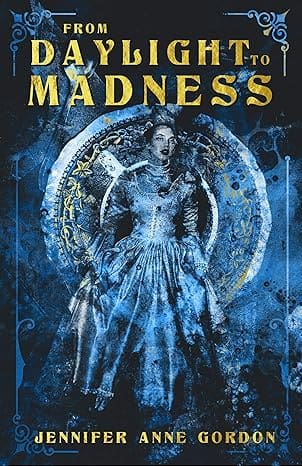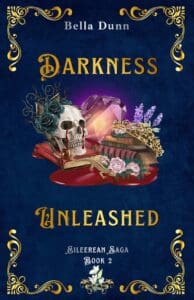
Synopsis:
On an almost uninhabitable rocky island off the coast of Maine, a Hotel looms over the shore, an ever-present gray lady that stands strong like a guard, keeping watch. For many who come here, this island is a sanctuary and a betrayal.
This is a place where memories linger like ghosts, and the ephemeral nature of time begins to peel away …like the sanity of all who have been unlucky enough to step foot on its shore.
In the late spring of 1873, Isabelle gave birth to her son Oscar, he cried for three startling minutes, and then went silent. During the months that follow, Isabelle is drugged and lulled into an almost hallucinatory world of grief and fear. Her life begins to feel as though it exists in a terrifying new reality separated from those around her …
When her grieving begins to make her husband, Henry, uncomfortable, he and his mother conspire to send Isabelle away to a Summer Hotel on Dagger Island, where she can rest and heal. While they are adamant that the hotel is not an asylum and that Isabelle will be able to return eventually to her home, Isabelle understands in her heart that it is all a lie. That perhaps, everything about being a woman in this time, may have always been a lie.
Her family has lied to her, and she has lied to herself.
The Hotel, of course, is not what it seems, and the foreboding Dagger Island begins to feel more like a prison than a retreat. Isabelle hears relentless sounds coming from the attic above her room, and the ever-present cries of small children scream in her head almost constantly. Are they hallucinations, or are they connected to the small cemetery she found, filled with the fresh dirt of little graves, the brokenhearted reminders of people that no one believes ever existed?
She meets a fellow guest at the Hotel, a young, enigmatic, and deeply damaged priest, named Francis.
Together they teeter on the edges of reality and try desperately to become free from the fates that their pasts have bound them to.
Review:
From Daylight to Madness is the story of Isabelle, a woman trapped in her life, burdened by societal expectations, and unable to truly take control of her future.
The book begins in the minutes after she gives birth to a son who dies almost immediately; he was premature, and in 1873, there was little that could have been done to save him. But she was never allowed to touch the baby, and in the aftermath of that loss, she’s expected to simply bounce back. To be what she was before. But she can’t. Much of the story is her struggle with a form of depression, and the callous way she is treated by her husband and mother-in-law. She is sent to “the hotel,” a bland name for a temporary asylum, to “rest” (see: to be fixed.)
The horror element was entirely psychological. The reader is subjected to Isabelle’s inner torment throughout the duration of the book, and left to wonder if what she’s experiencing is the result of her depression or the “tea” she is given to “calm” her. (It was laced with laudanum, which was used commonly in that era, and it’s an opioid, so either scenario is possible.)
In many ways, From Daylight to Madness reminded me of a darker version of Kate Chopin’s The Awakening, which was written around the same time period as this book takes place, and also has similar themes (and a similar ending.) If you aren’t familiar with The Awakening, it was first published in 1899 and is considered a feminist novel of the time, featuring an unhappy woman who is married to someone she doesn’t want to be with, and in time she learns to take some control over her life. But in the end, she believes she’s only left with one option, and it’s not a happy one. I’ll leave it at that to avoid spoilers.
This was not the first book I’ve read by Jennifer Anne Gordon. A couple years ago, I read Pretty/Ugly, which I really enjoyed, but From Daylight to Madness lacked the same polish. There were many typographical issues throughout the ebook edition (missing punctuation, missing words, some homophone confusions), and that detracted from my enjoyment. The story was good; I just wish it had gone through more proofreading before it was published.
All in all, this was a solid story with a gothic-horror feel, so check it out if that’s your thing.







Leave a Reply